Staff & Management
Tom Bragg, DVM
Veterinarian
Dr. Tom Bragg oversees all animal health related issues for the Institute, including acute bison and wildlife disease issues and preventative disease management protocols. He develops and conducts animal health and disease related research projects on Institute properties, as well as provide professional support on projects conducted by university and agency collaborators. This support includes providing veterinary expertise; field assistance with sample collection and laboratory submissions; disease diagnosis, vaccine and drug procurement and dosing; and veterinary supply management, among other tasks. He received his DVM from Kansas State University.
Jeremy Gingerich
Director of Land Operations
Throughout his career, Jeremy has used a holistic approach recognizing the complex dynamics entwining land and wildlife conservation and sustainable commerce, including working landscapes, forestry and fire ecology, human communities, livestock, wildlife, fisheries, riparian systems, conventional and alternative energy production, and the human need for open space and natural areas for personal meaning and sustainable agricultural enterprises.
Since 1999, he has practiced progressive and regenerative management on ranches in Montana, Colorado, Nebraska, and New Mexico, ranging from 18,000 – 585,000 acres, including some of the most diverse and critical wildlife habitat in the Northern and Southern Rockies.
Jeremy has served in several leadership roles within the Turner organization, including Ranch Manager at Red Rock Ranch, Assistant General Manager at Vermejo Park Ranch, and as Division Manager and Director of Ranch Operations based in the Bozeman, MT administration office. Since January 1, 2024, Jeremy has served as Director of Land Operations for Turner Enterprises, Inc. and the Turner Institute of Ecoagriculture. He is part of the leadership team stewarding 1.9 million acres, over 150 team members, and more than 40,000 bison on 14 ranches in Montana, Nebraska, New Mexico, Kansas, and South Dakota.
He received an A B.S. in Natural Resources Recreation and Tourism with a Minor in Conservation Biology from Colorado State University, as well as a M.S. in Ranch Management from the King Ranch Institute for Ranch Management.
Dusty Hand
Ranch Foreman
Dusty Hand oversees daily activities at McGinley Ranch to strategically accomplish operational needs and goals while facilitating research. With an intrinsic knowledge of the land and a passion for stockmanship, Dusty also leads the low-stress handling of our bison and identifies areas where we can improve bison and rangeland management.
Carter Kruse, PhD
Executive Director
With nearly 30 years in the ecological and agricultural fields, Dr. Carter Kruse oversees the Institute and its science and conservation programs. He works closely with property managers and scientists to develop and implement research and conservation projects consistent with the Institute’s mission. Dr. Kruse also collaborates with university partners to facilitate graduate and long-term research activity and educational opportunities. He received his PhD in Zoology from the University of Wyoming.
Jessica Lovitt, MS
Ranch Manager
Jessica Lovitt leads the McGinley team in promoting and integrating biodiversity, animal production, animal welfare, and soil and rangeland health objectives into daily and long-term management practices and planning on the Ranch. She also oversees the daily needs of the bison and Ranch infrastructure while encouraging rangeland health through regenerative practices. She advances the Ranch’s forage and bison production goals by developing grazing plans that ensure we stay adaptive in our range management and aligned with research initiatives. Jessica received her MS in Organizational Management from Chadron State College in Nebraska.
Magnus McCaffery, PhD
Senior Biologist
Dr. Magnus McCaffery oversees research projects for the Institute’s science and conservation programs. He collaborates with university, agency, and non-profit scientists to implement graduate and long-term research activities, and develops strategies for restoring and conserving ecosystems in rural landscapes. Receiving his PhD in Fish and Wildlife Biology from the University of Montana, Dr. McCaffery has more than 10 years of experience in the areas of ecology and conservation.
John Selby
Ranch Technician
John Selby stewards our yearling and bison finishing herds; animals that need steady daily management to accomplish production, research, and conservation objectives. John also has a keen eye and talent for maintaining and improving ranch infrastructure. John has a strong passion for learning and is excited to be able to contribute to the Institute’s research efforts, especially regarding regenerative grazing and the production of healthy protein in a positive way.
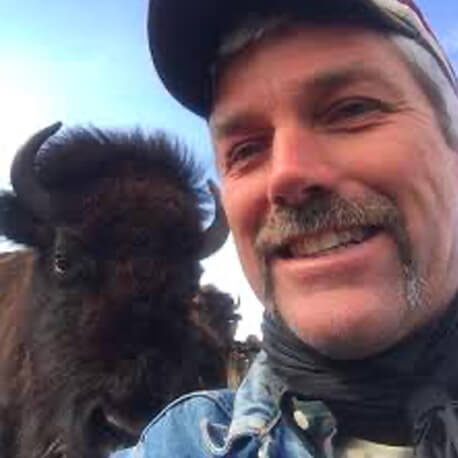
Tom Bragg
Veterinarian
Tom Bragg
Veterinarian
Dr. Tom Bragg oversees all animal health related issues for the Institute, including acute bison and wildlife disease issues and preventative disease management protocols. He develops and conducts animal health and disease related research projects on Institute properties, as well as provide professional support on projects conducted by university and agency collaborators. This support includes providing veterinary expertise; field assistance with sample collection and laboratory submissions; disease diagnosis, vaccine and drug procurement and dosing; and veterinary supply management, among other tasks. He received his DVM from Kansas State University.
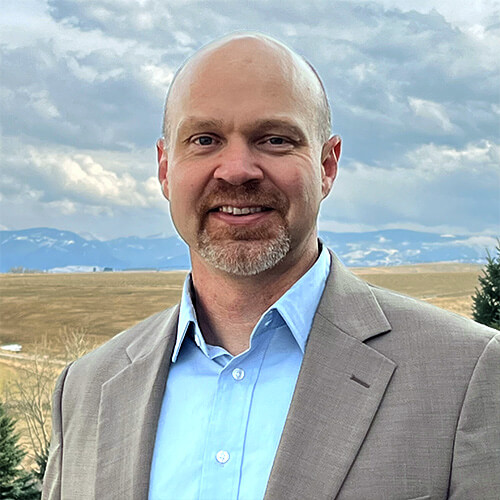
Jeremy Gingerich
Director of Land Operations
Jeremy Gingerich
Director of Land Operations
Throughout his career, Jeremy has used a holistic approach recognizing the complex dynamics entwining land and wildlife conservation and sustainable commerce, including working landscapes, forestry and fire ecology, human communities, livestock, wildlife, fisheries, riparian systems, conventional and alternative energy production, and the human need for open space and natural areas for personal meaning and sustainable agricultural enterprises.
Since 1999, he has practiced progressive and regenerative management on ranches in Montana, Colorado, Nebraska, and New Mexico, ranging from 18,000 – 585,000 acres, including some of the most diverse and critical wildlife habitat in the Northern and Southern Rockies.
Jeremy has served in several leadership roles within the Turner organization, including Ranch Manager at Red Rock Ranch, Assistant General Manager at Vermejo Park Ranch, and as Division Manager and Director of Ranch Operations based in the Bozeman, MT administration office. Since January 1, 2024, Jeremy has served as Director of Land Operations for Turner Enterprises, Inc. and the Turner Institute of Ecoagriculture. He is part of the leadership team stewarding 1.9 million acres, over 150 team members, and more than 40,000 bison on 14 ranches in Montana, Nebraska, New Mexico, Kansas, and South Dakota.
He received an A B.S. in Natural Resources Recreation and Tourism with a Minor in Conservation Biology from Colorado State University, as well as a M.S. in Ranch Management from the King Ranch Institute for Ranch Management.
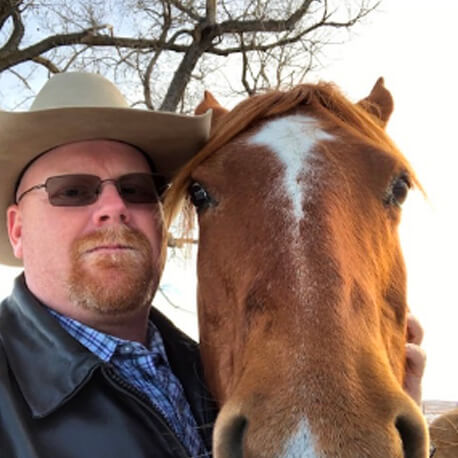
Dusty Hand
Ranch Foreman
Dusty Hand
Ranch Foreman
Dusty Hand oversees daily activities at McGinley Ranch to strategically accomplish operational needs and goals while facilitating research. With an intrinsic knowledge of the land and a passion for stockmanship, Dusty also leads the low-stress handling of our bison and identifies areas where we can improve bison and rangeland management.
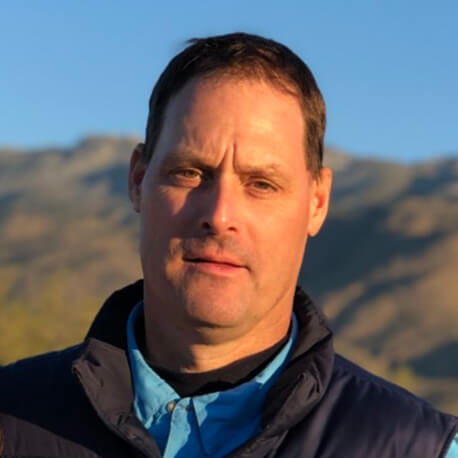
Carter Kruse, PhD
Director of Conservation and Science
Carter Kruse, PhD
Director of Conservation and Science
With nearly 30 years in the ecological and agricultural fields, Dr. Carter Kruse oversees the Institute’s science and conservation programs. He works closely with property managers and scientists to develop and implement research and conservation projects consistent with the Institute’s mission. Dr. Kruse also collaborates with university partners to facilitate graduate and long-term research activity and educational opportunities. He received his PhD in Zoology from the University of Wyoming.
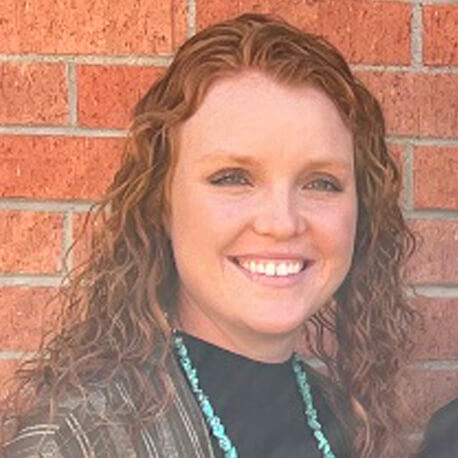
Jessica Lovitt, M.S.
Ranch Technician
Jessica Lovitt, M.S.
Ranch Technician
Jessica Lovitt handles the daily needs of the bison and Ranch infrastructure while encouraging rangeland health through regenerative practices. She advances the Ranch’s forage and bison production goals by developing grazing plans that ensure we stay adaptive in our range management and aligned with research initiatives. She received her MS in Organizational Management from Chadron State College in Nebraska.
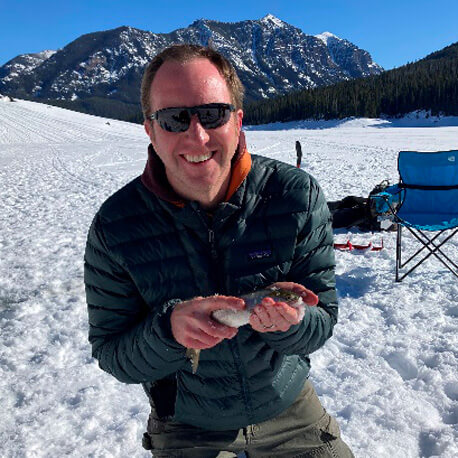
Magnus McCaffery, PhD
Senior Biologist
Magnus McCaffery, PhD
Senior Biologist
Dr. Magnus McCaffery oversees research projects for the Institute’s science and conservation programs. He collaborates with university, agency, and non-profit scientists to implement graduate and long-term research activities, and develops strategies for restoring and conserving ecosystems in rural landscapes. Receiving his PhD in Fish and Wildlife Biology from the University of Montana, Dr. McCaffery has more than 10 years of experience in the areas of ecology and conservation.
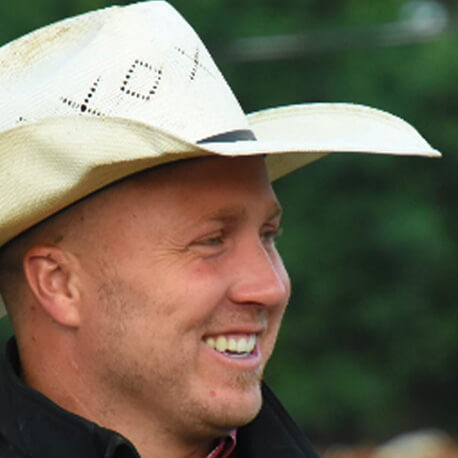
Tyrell McClain
Ranch Manager, M.S.
Tyrell McClain
Ranch Manager, M.S.
Tyrell McClain leads the McGinley Ranch team in promoting and integrating biodiversity, animal production, animal welfare, and soil and rangeland health objectives into daily and long-term management practices and planning on the Ranch. With a strong background in animal nutrition and research, Tyrell efficiently balances the conservation and production goals of the Ranch with the research objectives of our valued partners. He received his MS in Animal and Range Sciences from Montana State University.
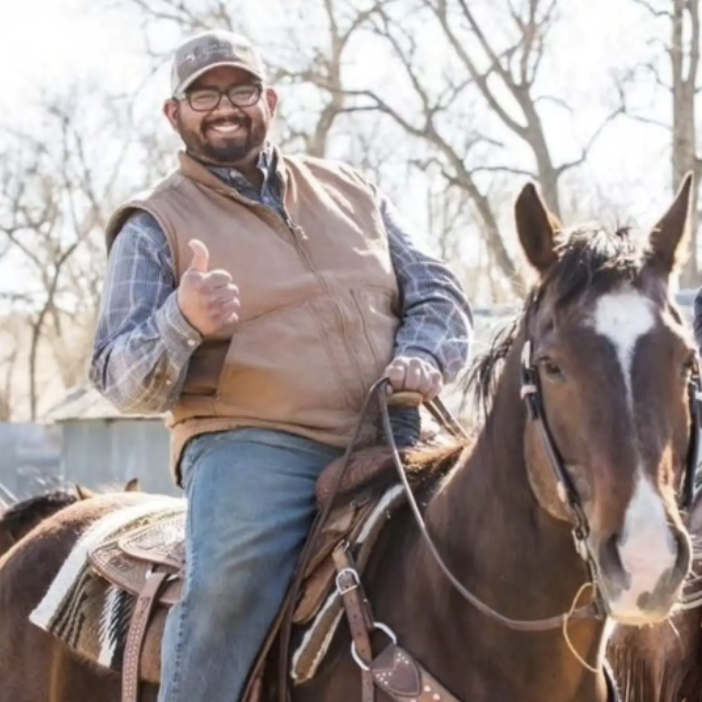
John Selby
Ranch Technician
John Selby
Ranch Technician
John Selby stewards our yearling and bison finishing herds; animals that need steady daily management to accomplish production, research, and conservation objectives. John also has a keen eye and talent for maintaining and improving ranch infrastructure. John has a strong passion for learning and is excited to be able to contribute to the Institute’s research efforts, especially regarding regenerative grazing and the production of healthy protein in a positive way.
